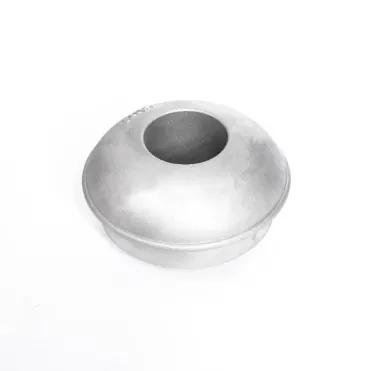Handy, Mobiltelefon:+86-311-808-126-83
Email:info@ydcastings.com
What Makes Stainless Steel Pump Casting Essential for Modern Industries?
When it comes to optimizing the performance and durability of pumps, the role of stainless steel pump casting cannot be overstated. These castings form the backbone of many critical applications, offering unmatched resistance to corrosion, wear, and extreme temperatures. In industries ranging from chemical processing to water treatment, relying on high-quality castings ensures that pumps deliver reliable service and maintain efficiency under demanding conditions. As the need for precision and longevity grows, understanding how stainless steel pump casting enhances these machines is key to making smart investment decisions.

How Does Pump Casting Producing Affect Final Product Reliability?
Behind every durable pump lies a meticulous process of pump casting producing that directly influences its performance and lifespan. This production phase combines advanced metallurgy with sophisticated molding techniques, allowing manufacturers to achieve precise dimensions and flawless surface finishes. When casting quality is compromised, issues such as porosity, cracking, or weak mechanical properties can arise, leading to premature failure. Therefore, mastering the art and science of pump casting producing ensures the final components meet stringent standards required by demanding industries. The synergy between skilled craftsmanship and innovative technology results in castings that support pumps through thousands of hours of operation without degradation.
What Factors Influence Pump Casting Price in the Market?
Understanding the variables that determine pump casting price helps buyers navigate the market and find the best value without sacrificing quality. Material selection plays a primary role, as premium stainless steel alloys cost more but provide superior corrosion resistance and mechanical strength. Additionally, the complexity of the casting design, including wall thickness and dimensional tolerances, affects manufacturing time and tooling expenses. Larger volume orders generally reduce per-piece costs due to economies of scale. However, opting for the cheapest pump casting price may result in substandard products prone to defects and early wear. Buyers should balance cost considerations with performance requirements to ensure a worthwhile investment.
Why Is Pump Casting Quality Crucial for Operational Efficiency?
The efficiency and reliability of pump systems hinge on the pump casting quality used in critical components like impellers, volutes, and housings. High-quality castings exhibit uniform microstructure and minimal impurities, which translates to better mechanical strength and resistance to fatigue. Such attributes are vital for pumps that operate continuously under high pressure or abrasive environments. Inferior casting quality often leads to frequent breakdowns, increased maintenance costs, and unexpected downtime. Therefore, manufacturers committed to excellence employ rigorous quality control protocols during every stage of the casting process. This vigilance guarantees that only castings meeting or exceeding industry benchmarks are incorporated into pumps destined for demanding service.
How Can You Identify High Quality Pump and Valve Castings?
Recognizing high quality pump and valve castings involves assessing several key indicators, including material certification, dimensional accuracy, and surface finish. Reliable castings are usually accompanied by detailed documentation verifying chemical composition and mechanical properties, ensuring traceability and consistency. Precise machining tolerances confirm that parts will fit seamlessly into pump assemblies without compromising performance. Additionally, visual inspections for cracks, inclusions, or surface irregularities help detect flaws before installation. End users benefit from partnering with manufacturers who maintain transparent quality assurance systems, offering castings that enhance the durability and efficiency of both pumps and valves.
What Role Does Stainless Steel Pump Casting Play in Corrosion Resistance?
In environments exposed to harsh chemicals or saline conditions, stainless steel pump casting is indispensable due to its superior corrosion resistance. The chromium content within stainless steel forms a protective oxide layer that shields the casting from rust and degradation. This protective property extends the operational lifespan of pumps and reduces the frequency of costly replacements. Industries such as petrochemical, pharmaceutical, and food processing especially rely on these castings to maintain purity and prevent contamination. Investing in corrosion-resistant castings ultimately safeguards equipment integrity and ensures uninterrupted production.
How Does the Process of Pump Casting Producing Enhance Mechanical Strength?
The strength of pump components largely depends on the casting process, which influences grain structure and residual stresses. Controlled cooling rates and precise alloy formulations during pump casting producing help achieve a dense, uniform microstructure free of weak spots. This results in components capable of withstanding dynamic pressures and mechanical shocks without cracking or deforming. Modern casting techniques such as investment casting or sand casting with advanced tooling contribute to superior mechanical properties. High mechanical strength reduces the risk of equipment failure, improves safety, and extends maintenance intervals.
Stainless Steel Pump Casting FAQs
Q: What advantages does stainless steel offer in pump casting?
A: Stainless steel provides excellent corrosion resistance, high mechanical strength, and durability, making it ideal for harsh environments and long-term use.
Q: How does pump casting producing impact pump efficiency?
A: The producing process determines dimensional accuracy and microstructure quality, which affect pump balance, vibration levels, and overall performance.
Q: Is a lower pump casting price always better?
A: Not necessarily; lower prices may indicate inferior materials or craftsmanship, leading to early failures and higher lifecycle costs.
Q: What quality checks ensure pump casting quality?
A: Chemical analysis, non-destructive testing, dimensional inspection, and hardness testing are common methods to verify casting integrity.
Q: Can high quality pump and valve castings be customized?
A: Yes, manufacturers can tailor castings to specific industry needs, adjusting alloy composition and design features to optimize performance.
-
Materials Used in Manufacturing Cap End Pipe FittingsNachrichtNov.24,2025
-
Material Properties of CF8M CastingNachrichtNov.24,2025
-
How to Inspect Pump Cap Ends for DamageNachrichtNov.21,2025
-
Backward Curved Impeller – Efficient Airflow Solutions for Industry | YD CastingsNachrichtNov.21,2025
-
Automobile Water Pump - Efficient, Quiet, Durable & ElectricNachrichtNov.21,2025
-
Impeller for Pumps – High-Efficiency, Durable, OEM-ReadyNachrichtNov.21,2025











